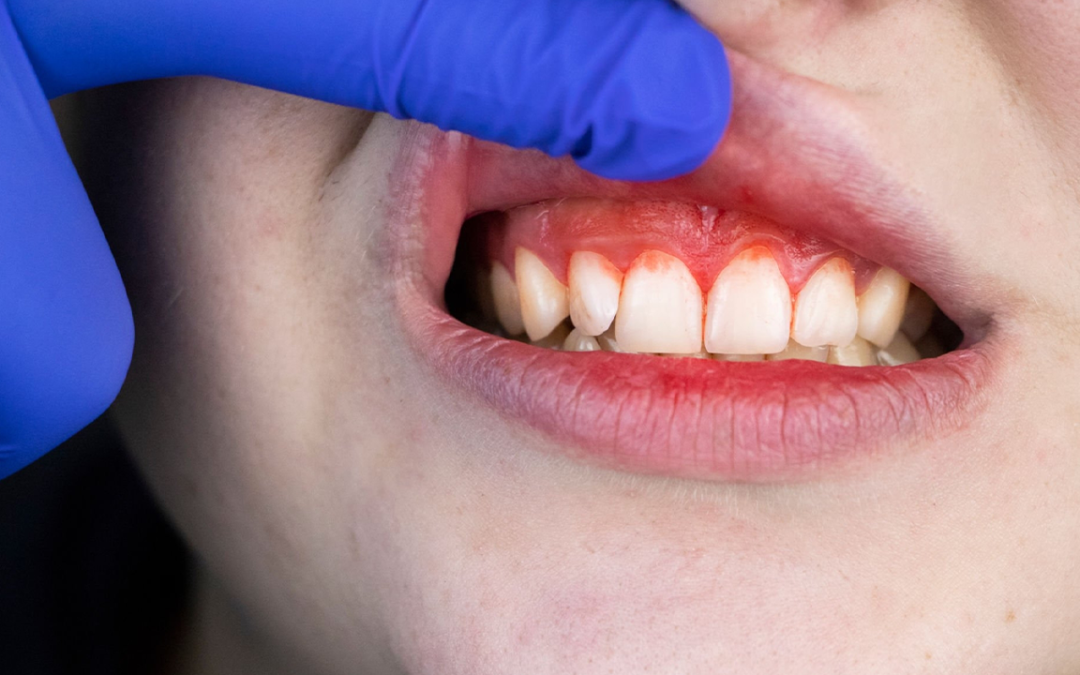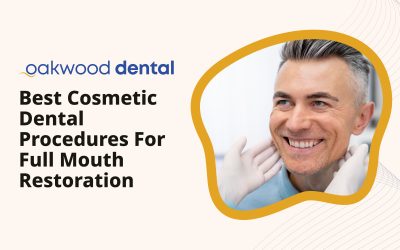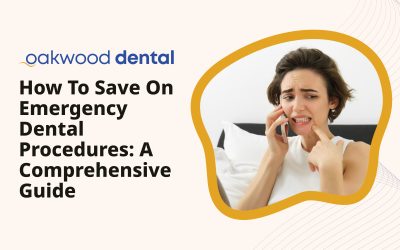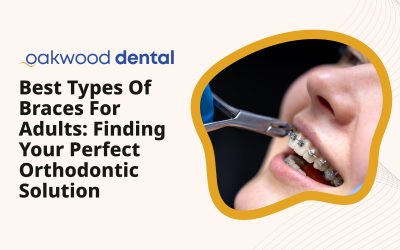Essential Steps for Gum Disease Prevention
- Brush your teeth twice daily and floss once a day
- Visit your dentist every six months for check-ups
- Watch for early warning signs like bleeding gums
- Know your risk factors including smoking and diabetes
- Get professional treatments when needed
- Understand how gum health affects your whole body
Understanding Gum Disease: The Silent Threat to Oral Health
Gum disease, also called periodontal disease, is one of the most common dental problems that adults face worldwide. It’s important to keep your gums healthy to protect both your smile and your overall health.
Periodontal disease starts as a mild gum inflammation called gingivitis. If you don’t treat it, it can get worse and become periodontitis, which damages the soft tissue and bone that hold your teeth in place. This happens without much pain, which is why people call it a “silent” disease.
Almost half of all adults have some form of gum disease, and it becomes more common as people get older. Men tend to get it more often than women. Gum disease is the main reason adults lose teeth, but you can prevent it with proper care.
If you catch gingivitis early, dentists can reverse it with treatment and good home care. But once it becomes periodontitis, dentists can only manage it, not cure it. That’s why preventive dental care is so important for everyone.
Learning about what causes gum disease, its symptoms, and how to prevent it helps you take charge of your oral health. Our periodontal specialists are here to help you keep your gums healthy through prevention and treatment when needed.
Recognizing the Warning Signs of Gum Disease
Knowing the early warning signs of gum disease can help stop it from getting worse. Many people ignore minor symptoms, not realizing they could be the start of a bigger problem.
Common Symptoms to Watch For
The earliest stage of gum disease, gingivitis, usually shows these signs:
- Red, swollen, or puffy gums
- Gums that bleed when you brush or floss
- Tender gums that hurt when touched
- Bad breath that doesn’t go away after brushing
- Changes in how your teeth fit together when you bite
If gum disease gets worse and becomes periodontitis, you might notice:
- Gums pulling away from teeth, making teeth look longer
- New spaces forming between your teeth
- Pus between your teeth and gums
- Loose or shifting teeth
- Pain when chewing
- Changes in how partial dentures fit
If you notice any of these symptoms, you should make an appointment with our dental team right away. At Oakwood Dental Clinics, we know that catching gum problems early can prevent them from becoming serious.
When to See a Dentist
While some mild gum irritation might get better with better brushing and flossing, certain signs mean you should see a dentist right away:
Gums that regularly bleed during or after brushing
Bad breath or bad taste that won’t go away
Gums pulling back from your teeth
Deep pockets forming between teeth and gums
Loose or shifting teeth
Our periodontal specialists are trained to spot early signs of gum disease that you might miss. Regular check-ups help us monitor your gum health and fix small problems before they become big ones.
Remember that bleeding gums are never normal. If you see blood when brushing or flossing, don’t wait for your next scheduled visit—call our office to see if you should come in sooner. Taking action when you first notice gum problems can save you from more complex treatments later.
Daily Oral Hygiene Practices for Gum Health
Having a good daily oral hygiene routine is the foundation of preventing gum disease. The right habits can remove plaque before it hardens into tartar, greatly reducing your risk of developing gum problems.
Proper Brushing Techniques
Brushing your teeth the right way is more than just moving a toothbrush around in your mouth. To effectively prevent gum disease:
Brush at least twice a day, ideally after meals
Use a soft-bristled toothbrush to avoid hurting your gums
Hold your brush at a 45-degree angle to your gums
Use gentle, circular motions instead of hard back-and-forth scrubbing
Spend at least two minutes brushing, dividing your mouth into four sections
Don’t forget to brush your tongue, which holds bacteria
Replace your toothbrush every three to four months, or sooner if the bristles are worn out
You might want to try an electric toothbrush, which studies show can remove more plaque than manual brushing. Many electric toothbrushes have timers to make sure you brush for the full two minutes.
The Critical Role of Flossing
Many people brush their teeth but skip flossing. However, flossing is essential for gum health because it removes plaque from places your toothbrush can’t reach—between teeth and below the gumline.
For good flossing results, you should:
Use about 18 inches of floss, wrapping most of it around your middle fingers
Hold the floss tightly between your thumbs and index fingers
Gently guide the floss between teeth using a rubbing motion
Curve the floss around each tooth in a C-shape when it reaches the gumline
Slide the floss up and down against each tooth surface
Use a clean section of floss as you move from tooth to tooth
If regular floss is hard to use, try floss picks, water flossers, or interdental brushes. The most important thing is finding a method you’ll use every day.
Mouthwash as a Helpful Tool
Antimicrobial mouthwashes can be valuable additions to your oral hygiene routine. They help:
Reduce bacteria in your mouth
Reach areas that brushing and flossing might miss
Temporarily reduce bad breath
Provide extra protection against plaque buildup
Look for mouthwashes with the American Dental Association (ADA) Seal of Acceptance, which means they’ve been tested and proven safe and effective. While mouthwash is helpful, remember it’s an add-on to—not a replacement for—brushing and flossing.
At Oakwood Dental Clinics, we can suggest specific oral hygiene products based on your individual needs and gum health. Creating these daily habits is one of the best ways to prevent gum disease and keep your mouth healthy.
The Impact of Diet on Gum Health
What you eat plays a big role in keeping your gums healthy. Your food choices can either help your body fight infection and keep tissues healthy or contribute to inflammation and disease.
Nutrients That Support Gum Health
Certain nutrients are especially important for maintaining strong, healthy gums:
Vitamin C: Helps your body make collagen and repair tissues. Not getting enough can lead to bleeding gums and slow healing. Foods with vitamin C include oranges, strawberries, bell peppers, and broccoli.
Vitamin D: Helps your body absorb calcium and has anti-inflammatory properties that may help prevent gum disease. You can get vitamin D from sunshine, fatty fish, and fortified dairy products.
Calcium: Supports bone health, including the jawbone that holds your teeth. Sources include dairy products, leafy greens, and fortified plant milks.
Omega-3 fatty acids: Have anti-inflammatory properties that may help reduce gum inflammation. You can find these in fatty fish, flaxseeds, and walnuts.
Antioxidants: Help fight oxidative stress and inflammation. Found in colorful fruits and vegetables, especially berries, dark leafy greens, and orange vegetables.
Foods to Limit for Gum Health
Just as some foods help gum health, others can cause problems:
Sugary foods and drinks: Sugar feeds the bacteria that form plaque, which can lead to gum disease. Try to eat fewer candies, sodas, pastries, and other sweet treats.
Refined carbohydrates: Foods like white bread, pasta, and crackers break down into simple sugars in your mouth, having a similar effect to sugary foods.
Acidic foods and drinks: Too much can wear away tooth enamel and irritate gum tissue. This includes citrus fruits, tomatoes, coffee, and wine.
Sticky foods: Things like dried fruits and caramels can stick to teeth and gums, giving bacteria more time to feed.
Alcohol: Can dry out your mouth, reducing saliva flow that helps clean your mouth and neutralize acids. It may also irritate gum tissue.
Hydration and Gum Health
Drinking enough water is often overlooked but is crucial for gum health. Water helps:
Rinse away food particles and bacteria
Stimulate saliva production, which contains minerals that help strengthen teeth
Dilute acids produced by bacteria
Prevent dry mouth, which can increase risk of gum disease
Try to drink water throughout the day, especially after meals when you can’t brush. Make water your main drink, and limit sugary drinks and too much alcohol.
At Oakwood Dental Clinics, we believe that nutrition advice is an important part of preventive dental care. During your visits, we can give you personalized food recommendations based on your specific oral health needs.
Professional Dental Care: Your First Line of Defense
While daily home care is the foundation of gum disease prevention, professional dental care provides essential support that you can’t get at home. Regular visits to Oakwood Dental Clinics play a crucial role in keeping your gums healthy and catching potential problems early.
The Importance of Regular Dental Check-ups
Dental check-ups serve multiple purposes in preventing gum disease:
Early detection: Dentists and hygienists can spot signs of gingivitis and early-stage periodontitis before you notice any symptoms.
Professional assessment: Your dental team can evaluate your specific risk factors and recommend personalized prevention strategies.
Monitoring changes: Regular visits allow tracking of gum health over time, making it easier to notice concerning trends.
Oral cancer screening: These routine screenings can detect early signs of oral cancer, which may have symptoms similar to gum disease.
Most dentists recommend check-ups every six months, though some patients with higher risk factors for gum disease may need more frequent visits. These might include people with diabetes, smokers, those with a family history of periodontal disease, or patients who have had gum issues before.
Professional Cleanings: Beyond What Brushing Can Do
Professional dental cleanings are essential because they:
Remove hardened tartar: Once plaque hardens into tartar (calculus), only professional tools can remove it.
Clean below the gumline: Hygienists can clean slightly below the gum margin, removing bacteria from the shallow pockets around teeth.
Polish away stains and remaining plaque: This makes it harder for new plaque to stick to tooth surfaces.
Provide a fresh start: Regular cleanings give you a “clean slate” that you can maintain with your daily brushing and flossing.
Specialized Periodontal Treatments
For patients showing signs of gum disease or those at high risk, our periodontal specialists may recommend additional treatments:
Scaling and root planing: A deep cleaning that removes tartar from below the gumline and smooths rough spots on tooth roots where bacteria gather.
Antibiotic treatments: Local or systemic antibiotics may be prescribed to control bacterial infection.
Laser therapy: Advanced laser treatments can target diseased tissue while preserving healthy gum tissue.
Surgical procedures: For advanced cases, surgery may be necessary to restore damaged tissues and bone.
At Oakwood Dental Clinics, we take a proactive approach to gum disease prevention. Our team provides thorough exams and cleanings, and we teach patients about their specific oral health needs. We believe that this partnership between professional care and daily home care offers the best protection against gum disease.
Understanding Risk Factors for Gum Disease
Some factors can make you more likely to get gum disease, making prevention even more important. Knowing these risk factors helps you take targeted steps to protect your gum health.
Risk Factors You Can’t Change
Some risk factors can’t be changed, but knowing about them helps you take extra preventive steps:
Age: The risk of developing gum disease increases as you get older, with studies showing it’s more common in older adults.
Genetics: Family history can play a big role in how likely you are to get gum disease. Some people may be genetically more prone to having a stronger immune response to mouth bacteria.
Previous gum disease: If you’ve had periodontal problems before, you’re more likely to get them again.
Certain health conditions: Conditions like diabetes, rheumatoid arthritis, and heart disease are linked to higher rates of periodontal disease.
Lifestyle-Related Risk Factors
Unlike genetic factors, you can change these to lower your risk:
Tobacco use: Smoking or chewing tobacco greatly increases gum disease risk and makes treatment less effective. Smokers are up to seven times more likely to develop gum disease than non-smokers.
Poor nutrition: Diets lacking essential nutrients can weaken your immune system and your body’s ability to fight infection.
Stress: Ongoing stress can harm immune function and make it harder for your body to fight off the bacteria that cause gum disease.
Alcohol consumption: Too much alcohol can dry out your mouth and irritate gum tissues, potentially contributing to gum problems.
Medication-Related Factors
Certain medications can affect gum health by changing the conditions in your mouth:
Medications causing dry mouth: Many medications, including antihistamines, decongestants, antidepressants, and blood pressure medications, can reduce saliva flow. Saliva helps protect against gum disease by washing away food and neutralizing acids.
Immunosuppressants: These can reduce your body’s ability to fight infections, including those in the gums.
Anti-seizure medications: Some drugs used to control seizures can cause gum overgrowth, making proper cleaning more difficult.
Oral contraceptives: Hormonal changes from birth control pills can make gums more sensitive to plaque.
Special Considerations for Women
Hormonal changes throughout a woman’s life can impact gum health:
Puberty: Increased hormone levels can increase blood flow to the gums, making them more sensitive to irritants like plaque.
Menstruation: Some women experience gum inflammation before their period.
Pregnancy: “Pregnancy gingivitis” affects many expectant mothers, typically beginning in the second or third month.
Menopause: Hormonal changes during menopause can cause discomfort in the mouth, including dry mouth and altered taste, which may indirectly affect gum health.
If you have one or more risk factors, it’s especially important to maintain excellent oral hygiene and schedule regular visits with our periodontal specialists. At Oakwood Dental Clinics, we can help you develop a personalized prevention plan that addresses your specific risks and provides extra protection where you need it most.
The Connection Between Gum Disease and Overall Health
The relationship between oral health and general health works both ways—gum disease can affect your body, and certain health conditions can impact your gums. This connection, sometimes called the “mouth-body connection,” shows why preventing gum disease is important not just for your smile, but for your entire health.
Health Conditions Linked to Periodontal Disease
Research has found connections between gum disease and several health conditions:
Heart disease: Studies suggest people with periodontal disease may have a higher risk of heart disease and stroke. The inflammation caused by gum disease may increase inflammation throughout the body, including in the arteries.
Diabetes: There’s a two-way relationship here—people with diabetes are more likely to get infections, including gum disease, while severe periodontal disease can make it harder to control blood sugar levels.
Respiratory conditions: Bacteria from the mouth can be breathed into the lungs, potentially causing or worsening respiratory diseases like pneumonia, especially in vulnerable people.
Pregnancy complications: Research has linked severe gum disease to premature birth and low birth weight.
Rheumatoid arthritis: Both conditions involve chronic inflammation, and studies suggest a connection between their severity.
The Inflammation Connection
Many researchers believe inflammation is the key link between periodontal disease and other health problems. Gum disease causes chronic inflammation in the oral tissues, which may contribute to inflammatory processes elsewhere in the body.
When bacteria from infected gums enter the bloodstream, they can trigger inflammatory responses in distant organs and tissues. This system-wide inflammation may contribute to the development or worsening of various health conditions.
How Managing Gum Disease Can Improve Overall Health
Taking steps to prevent and treat gum disease may have benefits beyond your mouth:
Better diabetes control: Studies show that treating periodontal disease can help improve blood sugar control in people with diabetes.
Reduced inflammation markers: Successful periodontal treatment has been shown to reduce levels of C-reactive protein and other inflammatory markers linked to heart disease.
Improved respiratory health: Good oral hygiene may reduce the risk of respiratory infections, particularly in elderly or people with weakened immune systems.
Potential benefits during pregnancy: While more research is needed, maintaining good oral health during pregnancy is considered an important preventive measure.
At Oakwood Dental Clinics, we take a whole-person approach to your health. Our team understands that keeping your gums healthy is an important part of your overall wellness. During your visits, we consider your complete health history and work with you to develop prevention strategies that benefit both your oral and general health.
If you have conditions like diabetes or heart disease, please tell our team so we can provide appropriate care and work with your other healthcare providers when needed. This team approach ensures you receive complete care that addresses all aspects of your health.
Advanced Preventive Strategies for High-Risk Individuals
Some people have a higher risk of developing gum disease due to genetic factors, existing health conditions, or past periodontal problems. If you’re at higher risk, standard prevention measures might need to be enhanced with more intensive strategies.
Customized Home Care Routines
For those at higher risk, a basic oral hygiene routine may not be enough. Our periodontal specialists might recommend:
- More frequent brushing: Three or more times daily, especially after meals
- Specialized toothpastes: Formulas with antibacterial properties or designed specifically for gum health
- Prescription-strength fluoride: To strengthen enamel and reduce the risk of decay near the gumline
- Antimicrobial mouth rinses: To reduce bacteria in the mouth
- Interdental cleaning aids: Water flossers, interdental brushes, or specialized floss for cleaning around implants or bridges
More Frequent Professional Care
Standard six-month check-ups may not be enough for high-risk patients. Your dentist might suggest:
Quarterly cleanings: More frequent professional cleanings to remove plaque and tartar before they cause damage
Periodontal maintenance: Specialized cleanings for patients with a history of gum disease
Regular periodontal evaluations: More detailed assessment of gum health, including measurements of gum pockets
Early intervention protocols: Quick treatment at the first sign of gum inflammation
Preventive Treatments
Several professional treatments can help prevent gum disease or stop it from getting worse:
Dental sealants: While mainly used to prevent cavities, sealants can also protect areas where the gums meet the teeth from bacterial invasion.
Fluoride treatments: Professional-strength fluoride applications strengthen teeth and can help prevent decay at the gumline.
Antimicrobial treatments: Professional application of antimicrobial agents to reduce harmful bacteria in the mouth.
Guided tissue regeneration: For those with previous bone loss, procedures to encourage bone regrowth may be recommended.
Addressing Specific Risk Factors
Certain risk factors require targeted approaches:
For diabetic patients: Keeping blood sugar under control is essential for gum health. We work with your doctor to ensure your diabetes is well-managed.
For smokers: A smoking cessation program should be a priority, as tobacco use greatly increases gum disease risk and makes treatment less effective.
For patients with dry mouth: Special products to increase moisture in the mouth, frequent water sipping, and possibly medication adjustments (working with your doctor).
For those with crooked teeth: Orthodontic treatment may be recommended, as crowded teeth can be harder to clean properly.
At Oakwood Dental Clinics, we believe in personalized preventive care. During your preventive dental visits, we carefully assess your risk factors and develop a customized prevention plan that addresses your specific needs. Our goal is to help you maintain optimal gum health regardless of your risk profile, preventing problems before they start.
Conclusion: Your Path to Lifelong Gum Health
Preventing gum disease effectively requires a multi-part approach that combines good home care, regular professional treatment, awareness of risk factors, and lifestyle choices that support oral health. By following the strategies discussed in this guide, you can greatly reduce your risk of developing periodontal problems and enjoy the benefits of healthy gums throughout your life.
At Oakwood Dental Clinics, we believe that gum health is fundamental to both oral health and overall wellness. Our team of dental professionals, including our periodontal specialists, is committed to helping you achieve and maintain optimal gum health through personalized care and education.
Remember these key points for effective gum disease prevention:
1. Practice good daily oral hygiene, including proper brushing technique and cleaning between teeth.
2. Visit your dentist regularly for professional cleanings and check-ups, even when nothing seems wrong.
3. Know the warning signs of gum disease and get treatment quickly if they appear.
4. Understand your personal risk factors and take extra preventive measures if you’re at higher risk.
5. Make lifestyle choices that support gum health, including good nutrition, avoiding tobacco, managing stress, and limiting alcohol.
6. Be aware of the connection between gum health and overall health, especially if you have conditions like diabetes or heart disease.
7. Adjust your oral care routine as needed throughout different life stages and circumstances.
We invite you to schedule an appointment with our team to check your current gum health and develop a personalized prevention plan. Whether you’re currently having gum problems or simply want to keep your gums healthy for life, we’re here to provide the expert care and guidance you need.
Your investment in preventive gum care today will pay off with better oral health, fewer dental problems, and potentially improved overall health for years to come. Let us help you on your journey to lifelong gum health.

 718-979-2121
718-979-2121









